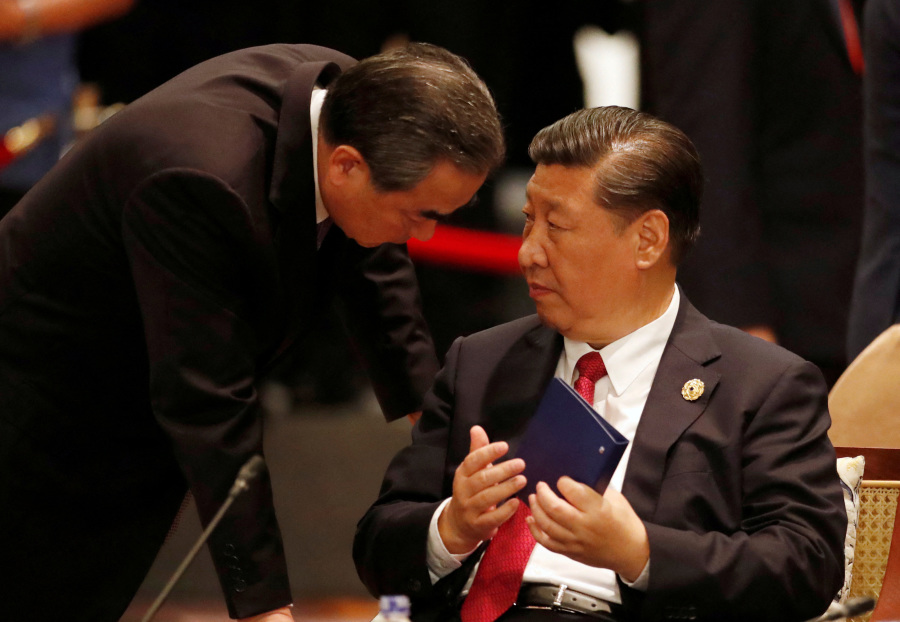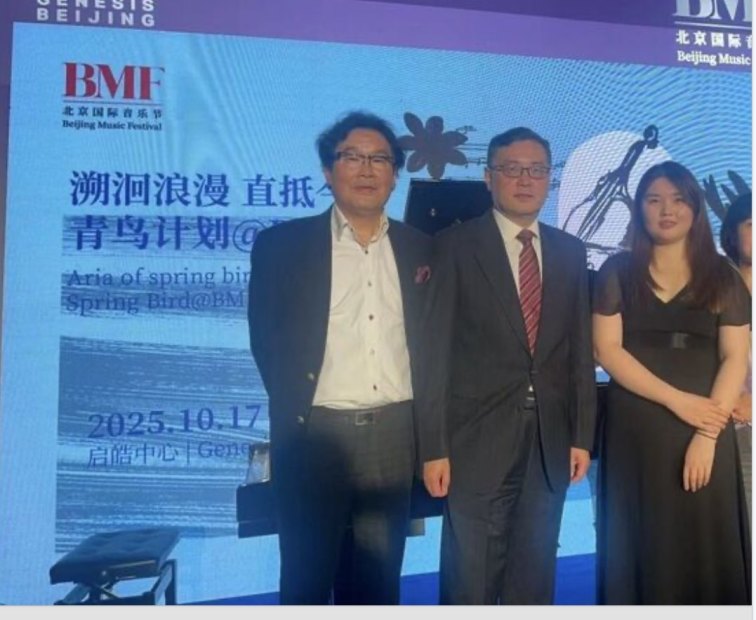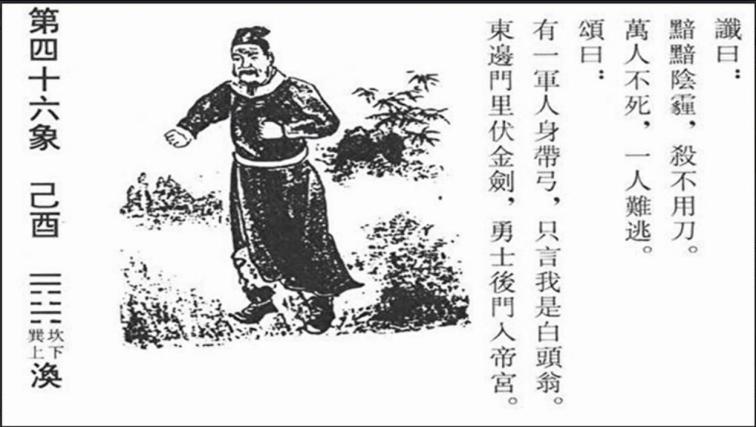Xi Jinping speaks to Foreign Minister Wang Yi during the APEC-ASEAN dialogue in Danang, Vietnam
[People News] Last Friday, after China’s Ministry of National Defense announced the expulsion of nine top generals, including He Weidong, from the Party and the military, speculation surged across all circles about a possible shift in Xi Jinping’s power at the upcoming Fourth Plenary Session. Then, at 12:19 a.m. Beijing time on October 20, Xinhua News Agency suddenly published an article that lavishly praised Xi Jinping and tried to whitewash the disastrous Chinese economy he created. This “midnight shock” by Xinhua instead served to confirm that Xi’s grip on power is slipping.
In this thousands-word-long article, “Xi Jinping” or “the General Secretary” was mentioned more than 20 times. The article mainly summarized Xi’s so-called “great achievements” during China’s 14th Five-Year Plan (2021–2025). It spared no exaggeration in extolling Xi for having achieved “new pioneering progress, breakthrough transformations, and historic accomplishments” in China’s economic and social development during this period.
While the world generally recognizes that China’s economy has entered a decline in recent years — with even domestic media repeatedly sounding alarms over its deterioration — China is now mired in a severe real estate downturn, soaring unemployment, worsening deflation, weak domestic demand, and a collapse in public confidence. Yet, Xinhua painted this picture as “a grand scroll of a splendid land and prosperous times gradually unfolding over five years of China’s economic development.” The article reads like a “midnight fright.”
As everyone knows, to understand the CCP’s behavior, one must read it in reverse: the more it boasts, the worse the situation actually is. The more Xi’s name is mentioned, the deeper the crisis he faces, and the closer he is to being abandoned.
Earlier, since September 30, the CCP’s mouthpiece People’s Daily began publishing a series of eight “Zhong Caiwen” articles by the Central Financial and Economic Affairs Commission, aiming to boost confidence in China’s economy. “Zhong Caiwen” is a homophonic abbreviation for “Central Financial and Economic Affairs Commission Article.” The series appeared under the column “China’s Economy Under the Guidance of Xi Jinping Economic Thought.”
Gu Qingyang, associate professor at the Lee Kuan Yew School of Public Policy at the National University of Singapore, analyzed in an interview with Lianhe Zaobao that this series of People’s Daily commentaries was meant to “unify thinking” ahead of the 20th Central Committee’s Fourth Plenary Session, as domestic and international views on China’s economy diverge — some of which could be seen as unfavorable to the meeting’s atmosphere.
Multiple observers believe that China’s economy is facing the severe challenge of structural recession, with analysts warning that an even greater catastrophe than the Great Depression has yet to arrive.
Political commentator Jiutianjian wrote that the People’s Daily articles try to paint a moribund China as still salvageable. The CCP’s media talking about the economy this intensively is rare in recent years.
The commentator “Huihu Shuo Fang” argued that real estate is only one key link in a much broader economic depression. While housing prices are plummeting, other sectors’ collapses are even more terrifying. Although Chinese people in 2025 already feel the economic depression, this is only the beginning: “The real panic hasn’t arrived yet. When floods and famine come, that will be the truly terrifying moment.”
According to official announcements, one of the main agenda items of the Fourth Plenary Session is to deliberate on major economic plans. The CCP’s state media publishing such an article at midnight, under the guise of discussing the “economy,” clearly aims at “personnel” issues instead.
Last Friday, nine top generals personally promoted by Xi were all purged. Public opinion largely believes this was a preemptive strike by the vice chairman of the Central Military Commission, in alliance with Party elders represented by Wen Jiabao, to weaken Xi’s faction before the plenary session. Following this explosive news, the CCP’s CCTV and other Party outlets remained unusually silent, while only the military’s newspaper published an editorial accusing He Weidong and Miao Hua of “collapsed faith and broken loyalty,” stating that no matter how high one’s position, “no one holds an ironclad immunity from punishment.”
Although Xi may have lost power within the military, he may not be willing to step down at the session. The upcoming plenary could still be portrayed by Party media as a “successful, united, and bright” meeting.
According to the latest report by former naval staff officer Yao Cheng, Xi Jinping will resign as chairman of the Central Military Commission at the Fourth Plenary Session, with Zhang Youxia to succeed him. Hu Chunhua and Liu Zhenli will serve as vice chairmen. The news has not been confirmed. If Hu Chunhua does become vice chairman, it would position him as the next successor, paving the way for a leadership transition.
We must also be mentally prepared: Xi may still sit motionless on the rostrum, but the sound of his collapsing power has long been deafening. His ultimate fate will inevitably be to “fall hurriedly and tumble away in panic!”
(First published by People’s Daily)











News magazine bootstrap themes!
I like this themes, fast loading and look profesional
Thank you Carlos!
You're welcome!
Please support me with give positive rating!
Yes Sure!